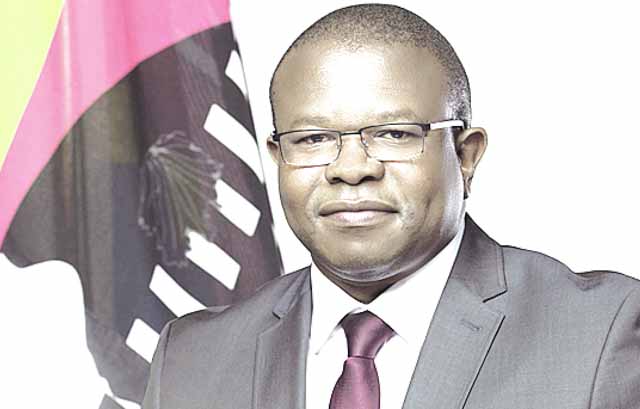By SIFISO DLAMINI | 2025-01-22

The country’s wealth distribution is controlled by 20 per cent of the population according to a comprehensive survey conducted by FinMark Trust, which said this was concerning.
According to the Blended Micro, Small and Medium Enterprises Survey 2023 report, the country’s wealth distribution remains a concern, with a mere 20 per cent of the population controlling a staggering 80 per cent of the nation’s wealth.
The findings come after the Centre for Financial Inclusion (CFI), ministry of Commerce, Industry and Trade, Eswatini Economic Policy Analysis and Research Centre (ESEPARC), and the Central Statistical Office (CSO), conducted a comprehensive survey to better understand the financial landscape and access to financial services for micro, small, and medium enterprises (MSMEs) in the country.
Known as the FinScope Survey, this was a global initiative developed by FinMark Trust (FMT) in South Africa and was conducted in over 30 countries worldwide.
burden
The study also revealed that the country faces significant social challenges, including a high HIV/AIDS prevalence rate of 24.8 per cent among adults which poses a substantial burden on the healthcare system and economy.
Unemployment was identified as another pressing issue, with a staggering 49.2 per cent rate among citizens actively seeking work.
This is according to the ministry of labour and social security’s 2023 labour force survey.
The findings were presented to Minister of Commerce Industry and Trade, Manqoba Khumalo, last week ad form part of the ministry’s six-year strategic plan for the Eswatini Micro, Small & Medium Enterprises Chamber of Commerce (EMSMECOC).
The study also revealed that Eswatini has a population predominantly residing in rural areas (75 per cent) and urban centres (25 per cent), thereby highlighting the importance of targeted support and resources for rural entrepreneurs to promote equitable economic growth and development.
About 71 per cent of MSMEs are rural while only 29 per cent are urban as per the findings of the study.
In its assessment of value chain opportunities and challenges in Eswatini, the study found that most business sectors are dominated by big business save for the sectors of support services these include transport and logistics, cleaning, security, catering and maintenance.
processing
The study also found that even though Eswatini produced a lot of raw wood, most of the processing was done in South Africa (SA).
The study found that even in the sectors where MSMEs dominate, potential for growth was moderate due mainly to lack of MSME procurement policies and absence of special tax regime for MSMEs.
The study further revealed that the sectors with the highest youth population are wholesale and retail accounting for 47 per cent, agriculture 20 per cent and business services 13 per cent.
About 79 per cent of the youth are individual entrepreneurs with no employees with the majority, about 56 per cent in their start-up phase having being established in less than two years.
The study also revealed that average age of most MSMEs in Eswatini is seven years and that about one-third of MSMEs are in their start-up phase between zero and two years.
It further states that nearly two-thirds have less than five years in operation, the pattern indicates a greater failure rate of MSMEs after this phase.
“This stage of a business’s life cycle needs extra consideration for growth and assistance, further about two-thirds of MSME owners were women but most of them run micro-enterprises and also proportionately fewer women own MSMEs, as per the study findings.
The study recommended for the provision of training programmes tailored for women-owned MSMEs to enable them to grow their businesses as well as to understand the gender roles that directly affect the amount of time women dedicate to growing their businesses.
Further most start-up businesses were owned by females, contributing to a higher proportion of mature businesses being women-led.
Since 2017, there have been a higher number of female business owners. There has been a notable improvement in the proportion of established and mature businesses that are led by women. The majority of MSME business owners continue to operate in the wholesale and retail sectors.
‘Each Liswati should be
earning
about E6 000’
Economist Sanele Sibiya said when looking at the country’s gross domestic product (GDP) per capita, every Liswati should be earning about E6 000 per month.
Sibiya said this was, however, not the case and it highlights one of the effects of unequal distribution of wealth.
He said the country must strive to come out of the top 10 unequal countries in the world.
The country is currently ranked the sixth unequal country in the world, meaning that its wealth was not evenly distributed and was concentrated among the elite few, which speaks to equality in terms of access to opportunities, Sibiya stated.
“If people do not have equal access to wealth, it brings about a situation where services such as quality education, health were only concentrated to a select few,” he said.
He said there was a need to expand on the wealth distribution in the country, which holds the nation back in terms of development.
“If the wealth is equally distributed, each Liswati would be three times above the poverty line meaning that each person should have a minimum of about E162 (USD9) to spend per day,” he said.
Adding, Sibiya said if the wealth was equally distributed, there would better economic growth because every person would have money to spend.
share story
Post Your Comments Below
All material © Swazi Observer. Material may not be published or reproduced in any form without prior written permission.
Design by Real Image Internet